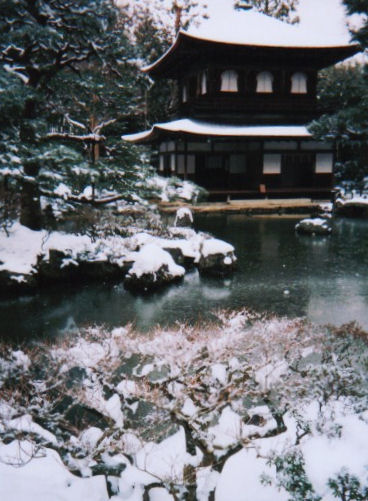MURYOKO

'Infinite Light'
Journal of Shin Buddhism
Harold Stewart
Transience
Transience is one of the Three Axioms of Buddhism, which at the beginning seems all too obvious but to which at the end of the course one returns, for only then can its true profundity be realized. Since full assent to transience as the fundamental and overmastering fact of this world is inevitable in any event, is it not nobler to give it of our own free will, rather than to be whipped into obedience by the fatal consequences of our past misdeeds, like a reluctant slave ? For wise composure and willing acceptance of the inevitable, though a bitter pill for the assertive ego to swallow, nevertheless prove to be the cure for our aimless agitation and fractious discontent. Such a cool, calm assessment of reality and clear-sighted obedience to its superior power demands the most masculine fortitude, generosity, and endurance; the most feminine patience, sympathy, and gentleness; the most childlike innocence, purity, and spontaneity; in other words the supreme virtues of the Bodhisattva. Acceptance is all.

Being all-wise, the Buddha already knows in advance what is in our best earthly interests and what will answer our inmost otherworldly needs. So petitionary prayer from a supplicant is considered unnecessary in the Pure Land schools and is replaced by invocation of the Name of Amida. To ask for some imagined benefit or favour, which with our limited foresight we but imperfectly understand and whose consequences might not prove to be for our eventual good, is to cast doubt on the omnibenevolence of the Buddha. Finally, one must leave everything to Amida's providence and live a life of selfless dependence on his Other Power and gratitude for the spiritual sustenance received through the invocation of his Name.
Human hindsight, on looking back at worldly failure, loss of family and friends, of health and wealth, of rank and reputation, beholds the wreck or frustration of every hope or desire; and yet in the long view all may have proved salutary, though at times painful, steps in our spiritual growth. If such mundane calamities serve to convince us of the limited, transient, and ultimately unsatisfactory nature of everything under the Supernal Sun, they can help to clear away obstructions on the Difficult Path and lead us to whole-hearted reliance on the Other Power.
If only our setbacks could have been contemplated all along from the universally comprehensive viewpoint of the Buddha, it would have been possible to foresee and understand their necessary part in the whole developing pattern of our lives. For to the central eye of the Buddha who subsumes and transcends all opposites, 'Samsara is Nirvana and Nirvana is Samsara', an aphorism whose antithesis indicates the nonduality (not unity) of its terms.
But to us peripheral beings whose frontal eye of Insight has not yet opened, Samsara and Nirvana seem separated by an intergalactic distance. And even though rationally we may be able to grasp and entertain this idea, it is still without effective realization by our whole being. Only the mirror-like Wisdom of the Enlightened One can reflect the entire universe with its every minute particular just as it is, rejecting nothing but regarding all with perfect impartiality and compassion. While our human ignorance, with its finite and limited viewpoints, still discriminates and judges everything earthly as good or bad, yet to those on whom Amida bestows his Vision, even this world can be seen as Jodo, his Western Paradise or Land of Pure Perfection, though 'such things must be believed before they can be seen'.